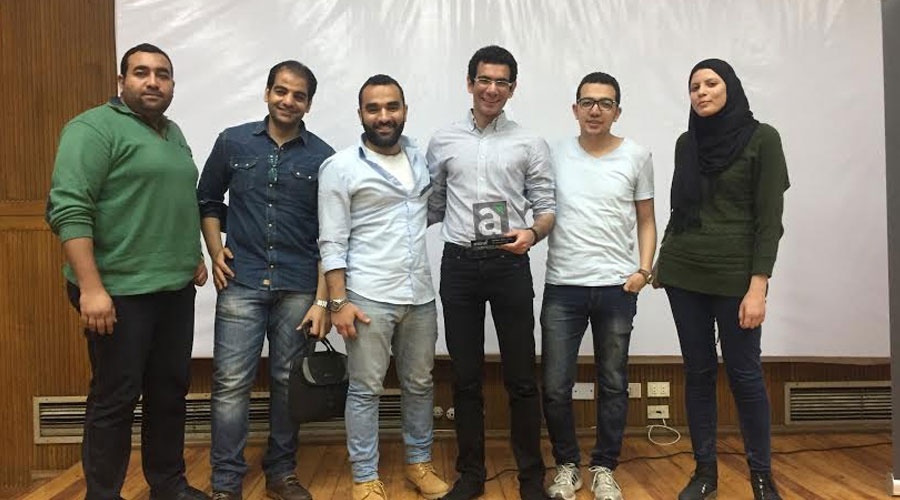Widebot: building Facebook chatbots gets easier

With over 11 million users engaging chatbots currently functioning on Facebook Messenger, most notably Uber’s ride requesting chatbot, it looks like the entire world wants to chat their way to their needs.
With 100,000 chatbots active on Facebook Messenger, 50 percent of businesses are expected to consider integrating messenger chatbots into their offerings by 2020.
As chatbots very often rely on artificial intelligence (AI) and natural language processing (NLP), integrating this service can be technically challenging and costly for average users especially with the demands of Arabic based chatbots.
Here comes Widebot, a TIEC incubated bot builder platform, officially launched on January 1 this year in Cairo, Egypt, and soon became an Arabnet Battles Cairo finalist. It was cofounded by Mohamed Nabil, CEO, and Ahmed Nabil, CTO.
The platform promises easy integration and setup for not tech-savvy users with a primary focus on Arabic language.
The team, including nine members, trains specific language and content modules for clients using accumulative machine learning.
The platform also offers white-labeling large size chatbots to enterprises such as Santander Rio bank in Argentina.
With their Menu Maker platform serving many restaurants in the region, both founders decided to focus on perfecting Arabic-based menu-driven chatbots. Their decision was enhanced following Facebook announcement during its F8 2017 conference, that developers building Messenger bots, can hide text input boxes and offer menu-driven conversations instead.
Mohamed Nabil revealed their focus on the restaurant business. “It is much easier to view menus and order something specific in texting as opposed to talking to a real person, it gets easier with time for users. As for owners, integrating a chatbot saves cost related to hiring customer service representatives and manning phone lines on daily basis.”
He added that their SaaS model serves SMEs and startups while their white-labeling enterprise module is more geared towards large size enterprises such as banks, travel agencies, and telecom companies, all looking to save the hassle of operating large scale customer service centers.
The largest issue typically facing chatbots is training modules to handle specific languages and requests. The the team applies accumulative language processing so that each new chatbot builds on its predecessors’ language parameters to make it easier to launch and operate if it is industry specific.
With their Menu Maker currently live, the team is tackling another industry: ecommerce.
Nabil explained: “Instead of browsing ecommerce sites and apps looking for a product, the chatbot will be able to get users specific links to available products at a fraction of the time spent.”
Saaid El Hakeem, founder of Yalla Bot, an Egyptian Facebook Messenger bot offering recommendations for restaurants and activities to users, said Widebot’s platform offers restaurant owners more exposure and users more simplified purchasing decisions. “When we recommend restaurants to users via our chatbot, the second question is typically the menu. The current state only allows us to send a pdf/image of the menu, but Widebot now can allow us integrate with each restaurant’s chatbot so that users can directly view the menu and make an order all via Facebook Messenger.”
With their SaaS model offering prices ranging from $50 to $200, Nabil is certain the restaurant and ecommerce businesses will cut down customer service and operation cost.
Widebot’s future plans include serving a wider range of customers with minimal startup cost and zero hassle.
“Chatbots are the future and the Arabic speaking population is currently prime for these services more than ever.”


